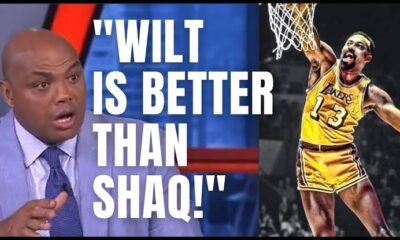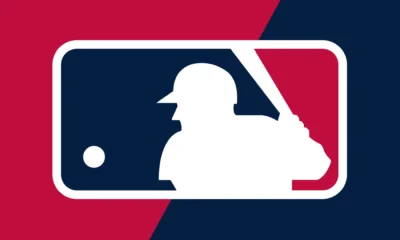Baseball
Red Sox: Reasons to Believe, Win or Lose!
There are no breaks in the schedule for a team like the 2024 Red Sox. Thursday’s rout of the struggling White Sox played out as expected, with a top pitcher dominating a team on a 13-game losing streak.
Tanner Houck, who threw only two pitches faster than 94 mph, carried a no-hitter into the sixth inning. Jarren Duran gave Boston an early lead with the first of 22 hits, and Danny Mendick from UMass Lowell ended up pitching in the ninth. The game was hardly compelling enough to distract from the Celtics.

One standout moment was when Holyoke native Jamie Westbrook, after 11 years in the minors, hit his first major-league home run off New Bedford’s Jared Shuster.
“I was trying to just slow down, because I didn’t want to be sprinting around the bases,” Westbrook said. “I don’t know how fast I was going or not. But I wanted to take a moment to smile and appreciate it and just have that one for myself, because it’s special, man. It really is.”
This highlight came in a week when baseball faced more controversy.
Tuesday’s lifetime ban of Tucupita Marcano for betting was inevitable after the Supreme Court’s 2018 decision to allow widespread sports betting. Similar cases occurred in the NBA with Jontay Porter and in the NHL with Shane Pinto — until someone else engages in vaguely described “activities relating to sports wagering.”
The reaction has been loud. Critics argue suspensions are hypocritical since MLB might move to Las Vegas, and there are calls for Pete Rose’s reinstatement. Some argue that players should be reinstated too, noting that Oakland reliever Michael Kelly, who received a one-year ban, bet less than $100 in an industry worth $11 billion last year.
But the rule is clear: baseball players, like casino employees, cannot gamble at their workplace. It’s an old, known rule, and those breaking it understood the risk.
The repeal of the Professional and Amateur Sports Protection Act, which opened the door for widespread sports betting, was fought by the major US sports leagues and the NCAA for years. Only when legalization seemed inevitable did the NBA and MLB start shaping the new landscape.
Their involvement is hardly clean, and as this industry grows, it is increasingly funded by the three ‘S’s: Streaming, Saudi Arabia, and same-game parlays.
Massachusetts, for instance, made double its expected revenue from sports betting in its first year. The Bally-branded regional sports networks, central to a bankruptcy that could collapse the RSN model, might rebrand under FanDuel.
We’ve come a long way from simple advertisements, now heavily influenced by betting. Watching a Red Sox broadcast, I was bombarded by 111 different advertisers, with the three primary sportsbooks — DraftKings, FanDuel, and BetMGM — prominently featured.
On one night, a 17-1 bet on Rafael Devers hitting a homer, Rob Refsnyder getting a hit, and Nick Pivetta reaching eight strikeouts succeeded. Regulars could bet for weeks with house money!
It’s overwhelming, even for someone who abandoned dreams of making money through gambling long ago. The automotive industry had a similar number of ads, and it’s not even another Subaru Summer yet!
We are bombarded by ads in sports because it’s a ratings safe haven. Many of us tune them out or absorb them unconsciously. My wife noticed sleeve patches on players vary in placement to maximize visibility based on batting or pitching hand. I never noticed that Sox victories are sponsored by a law firm or that the batter’s stats are sponsored and rotate every three innings.
Ads are everywhere: the back of the mound, home run distances, dugout angles, and different sponsors for various aspects of the broadcast and studios.
This is a meander, but there’s a point. Accept that people will bet. It’s another vice we must manage. However, gambling, like fantasy sports before it, can degrade the experience of watching sports by pushing winning down the priority list.
Teams now diversify into real estate and other ventures, less reliant on winning for profit. The Red Sox, for instance, have focused on fan experience and promise, sometimes making playoffs with just 83 wins.
Sports used to be about winning for fans. Fantasy sports changed that dynamic, allowing people to “win” even if their team lost. Gambling exacerbates this shift.
Profit has always driven sports and their owners, but winning was once the primary means. Now, it’s just one of many ways to succeed, which isn’t what fans signed up for, nor should they accept it. There are no free spaces on the schedule, nor should there be any unearned support from those who matter.
-

 Basket Ball3 weeks ago
Basket Ball3 weeks agoNBA Legends Explain Why Wilt Chamberlain Was Better Than Everybody. Take a look at what he said ⬇️⬇️
-

 Uncategorized2 weeks ago
Uncategorized2 weeks agoAgnetha Fältskog explains why she decided to retire: “I have no choice but to do this, even though I know it will upset my fans.”
-

 Uncategorized2 weeks ago
Uncategorized2 weeks agoPat Metheny gives his explanation for retiring: “I know this would hurt my fans, but I have no other choice.”
-

 Uncategorized2 weeks ago
Uncategorized2 weeks agoBenny Andersson and his wife Mona Nörklit are celebrating their wedding anniversary today. Congratulations!
-

 Uncategorized2 weeks ago
Uncategorized2 weeks agoI bid you farewell: Pat Metheny declares his retirement date because of…
-

 NFL2 weeks ago
NFL2 weeks agoCongratulations to Lamar Jackson, who announced today that he and his wife will be getting married.
-

 Uncategorized2 weeks ago
Uncategorized2 weeks agogoodbye fans: Agnetha Fältskog announces her retirement date due to
-

 Uncategorized2 weeks ago
Uncategorized2 weeks ago“Paul McCartney and Wife Announce Divorce, Ending Decades-Long Marriage”










